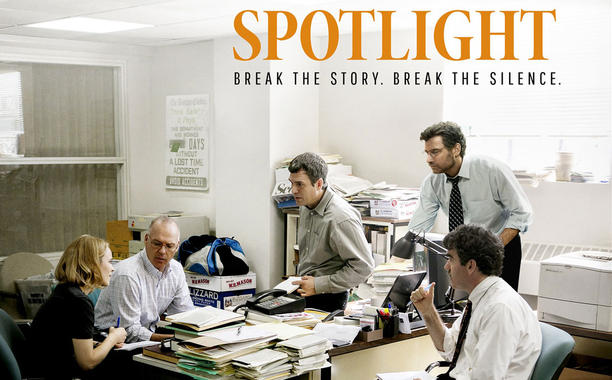By KATHRYN STUTZ
There is a long-standing tradition among science fiction writers of predicting the future.
Everything about the film Ender’s Game feels seamlessly futuristic in the image of the modern: children do their homework and play games on tablet computers, and the world is connected on an information network called the net where people can hide their identities. Communication is instantaneous, change is rapid and we are forced to grow up fast to accommodate.
And yet, this is a faithful adaptation of a book which was first published in a short form in 1977.
This blending of the historical origins of the narrative (some of which have, admittedly, been downplayed in the film, including the removal of a cold-war-esque ‘Russian threat’ subplot) with modern cinematic and cultural aesthetics (including modern parlance like ‘email’) and a futuristic setting show off the one far more fantastical aspect of the story: a vast inter-species space war.
Though Ender’s Game was in many ways marketed as an action-packed galactic battle movie, the wars in which the young protagonist become embroiled are in the background for most of the film; the main plot is the titular Ender’s experiences at the disturbingly militarized ‘Battle School,’ the preparatory academy for young children to become commanders in the International Fleet, and the moral implications of Ender’s experiences.
Asa Butterfield’s Ender is never less than excellent. He captures the frightened child and the confident commander, the innocent and the ruthless, the amazed and wondrous, the cynical and the betrayed. He is convincingly a brilliant strategist, and his internal struggles over his identity as both empathic but capable of violence are relatable, if occasionally overly ‘drilled-in’ by the narrative. He is, on occasion, nothing short of truly scary.
Not all of Ender’s peers live up to Butterfield; the performances of the other students at Battle School and of Ender’s siblings are sufficient, but not revelatory.
Harrison Ford and Viola Davis provide good portrayals of two bickering authority figures at the Battle School, Colonel Graff and Major Anderson. The two play off each other, increasing much-needed tension as the movie progresses to explain their own desperate acts of training children to be, essentially, killing machines.
Where Ford’s and Davis’s performances pick up however, is in the carefully constructed scenes that show them disagreeing in front of their students, failing to provide a united front for the individuals who look up to them like parents.
This doubt and insecurity makes the characters Graff and Anderson childish, and pushes the burden of their command onto their young charges, to great emotional effect; they feel all too much like the mother and father who, too busy arguing at the dinner table over a child’s academic performance, fail to notice this same child working himself to death to please them.
Of course, the real place of Graff and Anderson in the narrative is far more cynical: their main concern is success in the war, not the lives of their pupils.
These acting performances are carried by excellent special effects and cinematography. The effects for sequences occurring in the Null Gravity Battle Rooms are particularly impressive.
As an adaptation of Orson Scott Card’s novel, Ender’s Game suffers from the usual issues of compression in the timelines and setting, but the product only occasionally feels unduly rushed, and the important information is communicated, if not always in subtle ways.
What the book can describe over the course of several years of the protagonist’s life, the movie must abbreviate to a line or two during a training session.
Ender has also been pragmatically aged-up; he grows from the age of six to 12 in the novel, while he appears to start out at around 12 years in the film.
Often, the symbolism feels a little too obvious, a là Baz Luhrmann’s The Great Gatsby. Since the moral issues presented in Ender’s Game, are, however, more emotional than symbolic, this is not as much of a death-stroke for Ender’s Game as a whole.
Anyone looking for an action-packed space movie may well be disappointed with the slow-build of characterization and serious moral issues through the main part of Ender’s Game, but the narrative itself is complex if not terribly sophisticated, and worth the price of admission for anyone with a passing interest in science fiction, morality dramas or coming-of-age tales.
Those sensitive to violence may find some sequences disturbing, and may wish to avoid this movie.
Ender’s Game, rated PG-13, is currently in theatres.


